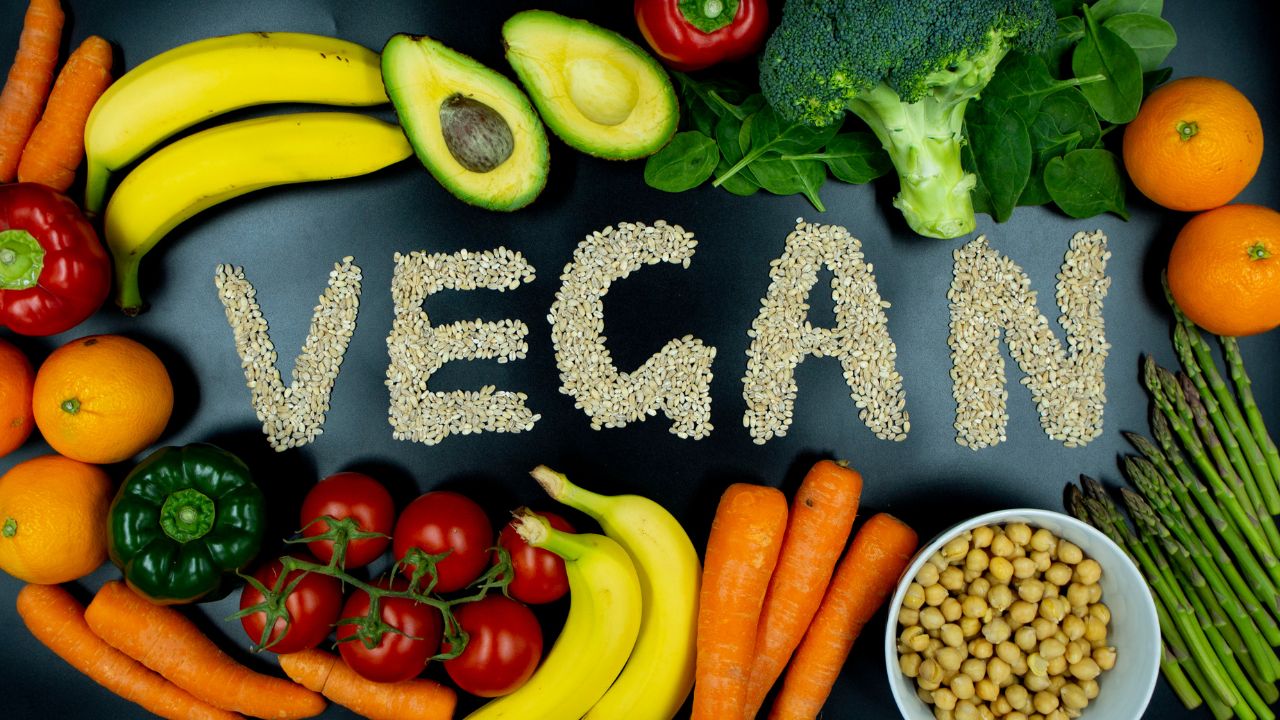Curious About A Plant-Based Diet? Are you considering switching to a plant-based diet but are still determining where to start? Or are you curious about the benefits and challenges of adopting this lifestyle? Whatever your reasons, exploring the world of plant-based eating can lead to numerous health benefits, environmental advantages, and a deeper connection with the food you consume.
First Of To Plant-Based Diets
What Is A Plant-Based Diet?
A plant-based diet predominantly comprises foods sourced from plants, encompassing a rich array of fruits, vegetables, grains, nuts, and seeds. While certain individuals completely avoid animal products, others may occasionally incorporate modest servings of meat, dairy, or fish into their dietary regimen. This dietary approach emphasizes the consumption of plant-derived foods while allowing for flexibility in including animal products intermittently.
Benefits Of A Plant-Based Diet
Embracing a plant-based diet is linked to many health advantages, such as a decreased likelihood of heart disease, lower blood pressure, and enhanced digestive well-being. Moreover, choosing a plant-based lifestyle is pivotal in fostering environmental sustainability by diminishing greenhouse gas emissions and preserving vital water resources.
Types Of Plant-Based Diets
Vegan Diet

Veganism encompasses a lifestyle choice characterized by the abstention from all animal-derived products, which includes meat, dairy, eggs, and honey. Additionally, many individuals who adhere to vegan principles extend their commitment beyond food consumption to exclude non-food items sourced from animals, such as leather and wool. This lifestyle reflects a profound dedication to minimizing the exploitation of animals for human consumption and usage, advocating for ethical treatment and sustainability across various aspects of daily living.
Vegetarian Diet
Vegetarians typically exclude meat and fish but may consume dairy products and eggs. There are various subcategories of vegetarianism, including lacto-vegetarian (consumes dairy but not eggs) and ovo-vegetarian (consumes eggs but not dairy).
Flexitarian Diet
Flexitarians primarily follow a plant-based diet but occasionally eat meat or fish in moderation. This flexible approach allows individuals to enjoy the health benefits of plant-based eating while still incorporating animal products into their meals on occasion.
Nutritional Aspects Of A Plant-Based Diet
Essential Nutrients To Consider
While plant-based diets can provide ample nutrition, it’s essential to pay attention to certain nutrients that may be lacking, such as vitamin B12, iron, calcium, and omega-3 fatty acids. Incorporating various plant foods and supplementing with fortified foods or supplements can help ensure adequate intake.
Tips For Meeting Nutritional Needs
- Include a diverse range of fruits, vegetables, whole grains, legumes, nuts, and seeds.
- Pay attention to portion sizes and aim for a balanced intake of carbohydrates, protein, and fats.
- Consider consulting with a registered dietitian or nutritionist for personalized guidance on meeting your nutritional needs.
Health Benefits Of A Plant-Based Diet
Lower Risk Of Chronic Diseases
Numerous studies have shown that plant-based diets are associated with a reduced risk of chronic diseases such as heart disease, type 2 diabetes, and certain types of cancer. The high fibre content and abundant antioxidants in plant foods contribute to these protective effects.
Improved Heart Health
Plant-based diets are inherently low in saturated fat and cholesterol, making them beneficial for heart health. Individuals can lower their risk of developing cardiovascular conditions and improve overall heart function by prioritizing foods like fruits, vegetables, whole grains, and nuts.
Weight Management
Plant-based diets tend to be lower in calories and higher in fibre than traditional Western diets, making them conducive to weight management and healthy weight loss. Additionally, plant-based foods are often more filling and nutrient-dense, helping individuals feel satisfied while consuming fewer calories.
Environmental Impact Of Plant-Based Diets
Reduction Of Greenhouse Gas Emissions
There may be a direct link between food and mental health, according to recent studies. Reduced rates of stress, anxiety, and depression are linked to plant-based diets high in fruits, vegetables, whole grains, and legumes. They might support enhanced mental wellness and mood.
Conservation Of Resources
Plant-based diets require fewer natural resources, such as land, water, and energy, than animal-based diets. Individuals can contribute to global efforts to conserve resources and promote sustainability by shifting towards plant-based eating.
Challenges Of Transitioning To A Plant-Based Diet
Social Aspects
Transitioning to a plant-based diet can present social challenges, especially when animal products are central to cultural or social traditions. However, with patience, open communication, and creativity in meal planning, individuals can navigate social situations while adhering to their dietary preferences.
Meal Planning And Preparation
One common challenge of adopting a plant-based diet is learning new cooking techniques and recipes to ensure meal variety and enjoyment. Investing in cookbooks, exploring online resources, and joining community cooking classes can help individuals develop their culinary skills and discover delicious plant-based dishes.
Tips For Transitioning To A Plant-Based Diet
Gradual Changes
Consider gradually switching to a plant-based diet by increasing the amount of fruits, vegetables, and whole grains in your meals rather than making big changes all at once. This strategy makes the transition time easier and raises the possibility of sticking to a plant-based diet over the long run.
Experimenting With New Recipes
Exploring new recipes and cuisines can make transitioning to a plant-based diet more enjoyable and sustainable. Try experimenting with different cooking methods, flavour combinations, and plant-based substitutes to discover your favourite dishes and create a diverse meal repertoire.
Common Misconceptions About Plant-Based Diets
Lack Of Protein
One of the most common misconceptions about plant-based diets is that they need more protein. However, plant foods such as beans, lentils, tofu, tempeh, quinoa, and seitan are excellent protein sources and can easily meet daily protein requirements.
Inadequate Nutrient Intake
Another misconception is that plant-based diets are inherently deficient in essential nutrients. With proper planning and attention to food choices, individuals can obtain all the nutrients they need from a plant-based diet, including vitamins, minerals, and antioxidants.
Plant-Based Diet And Athletic Performance
Meeting Energy Needs
Athletes and active individuals can thrive on a plant-based diet by consuming various nutrient-dense foods that provide adequate energy for training and recovery. Plant foods rich in carbohydrates, such as fruits, vegetables, whole grains, and legumes, can fuel workouts and support endurance.
Enhancing Recovery
Plant-based diets are rich in anti-inflammatory compounds and antioxidants, which can help reduce exercise-induced inflammation and promote faster recovery after intense training sessions. Additionally, consuming protein-rich plant foods can support muscle repair and growth post-workout.
Cultural and Ethical Considerations
Personal Beliefs And Values
For many individuals, adopting a plant-based diet is motivated by ethical considerations, such as compassion for animals and concerns about animal welfare. By aligning dietary choices with personal values, individuals can feel a sense of integrity and purpose in their food choices.
Ethical Treatment Of Animals
Choosing plant-based foods over animal products is an ethical stance that promotes the humane treatment of animals and reduces the demand for factory farming practices. Individuals can contribute to a more compassionate and sustainable food system by opting for plant-based alternatives.
Plant-Based Diet For Children And Families

Ensuring Adequate Nutrition
Plant-based diets can be suitable for individuals of all ages, including children and families, as long as they are well-planned and nutritionally balanced. Parents should pay special attention to ensuring children receive all the essential nutrients for healthy growth and development.
Family-Friendly Meal Ideas
Getting children involved in meal planning and preparation can make plant-based eating enjoyable and educational for the whole family. Encourage children to explore new foods, flavours, and textures while providing various plant-based options that appeal to their tastes and preferences.
Sustainable Food Choices Beyond Plant-Based Diets
Local And Seasonal Produce
In addition to following a plant-based diet, individuals can further reduce their environmental impact by choosing locally grown and seasonal produce whenever possible. Supporting local farmers and reducing the carbon footprint of food transportation are key aspects of sustainable eating.
Reducing Food Waste
Minimizing food waste is another important component of sustainable eating. By planning meals thoughtfully, storing food properly, and repurposing leftovers creatively, individuals can minimize the amount of food in landfills and contribute to a more sustainable food system.
Plant-Based Diet And Mental Well-Being
Connection Between Diet And Mental Health
There may be a direct link between food and mental health, according to recent studies. Reduced rates of stress, anxiety, and depression are linked to plant-based diets high in fruits, vegetables, whole grains, and legumes. They might support enhanced mental wellness and mood.
Incorporating Mindfulness Into Eating Habits
Practising mindfulness while eating can enhance the enjoyment and satisfaction derived from plant-based meals. By savouring each bite, paying attention to hunger and fullness cues, and cultivating gratitude for the nourishment provided by plant foods, individuals can foster a deeper connection with their food and promote overall well-being.
Celebrity Endorsements And Trends In Plant-Based Eating
Influence Of Public Figures
The popularity of plant-based diets has been further fueled by celebrity endorsements and influential public figures who advocate for plant-based eating. From athletes and actors to chefs and environmental activists, celebrities have helped raise awareness about plant-based diets’ health, environmental, and ethical benefits.
Popularity Of Plant-Based Options
With the growing demand for plant-based foods, supermarkets, restaurants, and food companies have expanded their offerings to include many plant-based options. From plant-based meats and dairy alternatives to ready-to-eat meals and snacks, more choices exist for individuals interested in exploring plant-based eating.
Conclusion
Adopting a plant-based diet offers many benefits for both individuals and the planet. From improved health and reduced environmental impact to ethical considerations and culinary exploration, plant-based eating can transform lives and contribute to a more sustainable and compassionate world.
FAQ
Is a plant-based diet suitable for everyone?
Curious About A Plant-Based Diet? All ages can benefit from plant-based diets, but it’s crucial to make sure that a balanced, diverse diet meets all of the body’s nutritional demands. For advice on particular issues or nutritional needs, speak with a medical practitioner or certified nutritionist.
How can I ensure I’m getting enough protein on a plant-based diet?
Curious About A Plant-Based Diet? Sources of plant-based protein include quinoa, lentils, tofu, tempeh, nuts, and seeds. By include a range of these items in your meals and snacks, you may easily achieve your daily protein needs. Additionally, consider using protein-rich plant-based powders or supplements if necessary, and focus on consuming a diverse range of plant foods to ensure adequate amino acid intake.
What about vitamin B12 on a plant-based diet?
Curious About A Plant-Based Diet? Since animal products are the main source of vitamin B12, those who follow a plant-based diet would need to take supplements or eat items that have been fortified with the vitamin, like plant-based milk, breakfast cereals, nutritional yeast, or meat alternatives. Regularly monitoring vitamin B12 levels through blood tests and adjusting supplementation as needed is recommended to prevent deficiency.
How can I handle social situations and dining out as a plant-based eater?
Curious About A Plant-Based Diet? Communicate your dietary preferences politely and confidently with friends, family, and restaurant staff. When dining out, look for restaurants with plant-based options or customize dishes to suit your needs. Bringing a plant-based dish to social gatherings ensures you have something to enjoy, and educating others about your dietary choices can foster understanding and support.
Will I miss out on essential nutrients by avoiding animal products?
Curious About A Plant-Based Diet? It is feasible to get all the key nutrients your body requires from a plant-based diet if you plan ahead and pay attention to what you eat. To achieve your nutritional needs for vitamins, minerals, protein, and healthy fats, concentrate on eating a wide variety of fruits, vegetables, whole grains, legumes, nuts, and seeds. See a medical expert or qualified dietician for individualized advice if you have any concerns.




puravive reviews 29 Feb 2024
This entrance is unbelievable. The splendid substance displays the publisher’s dedication. I’m overwhelmed and anticipate more such mind blowing sections.